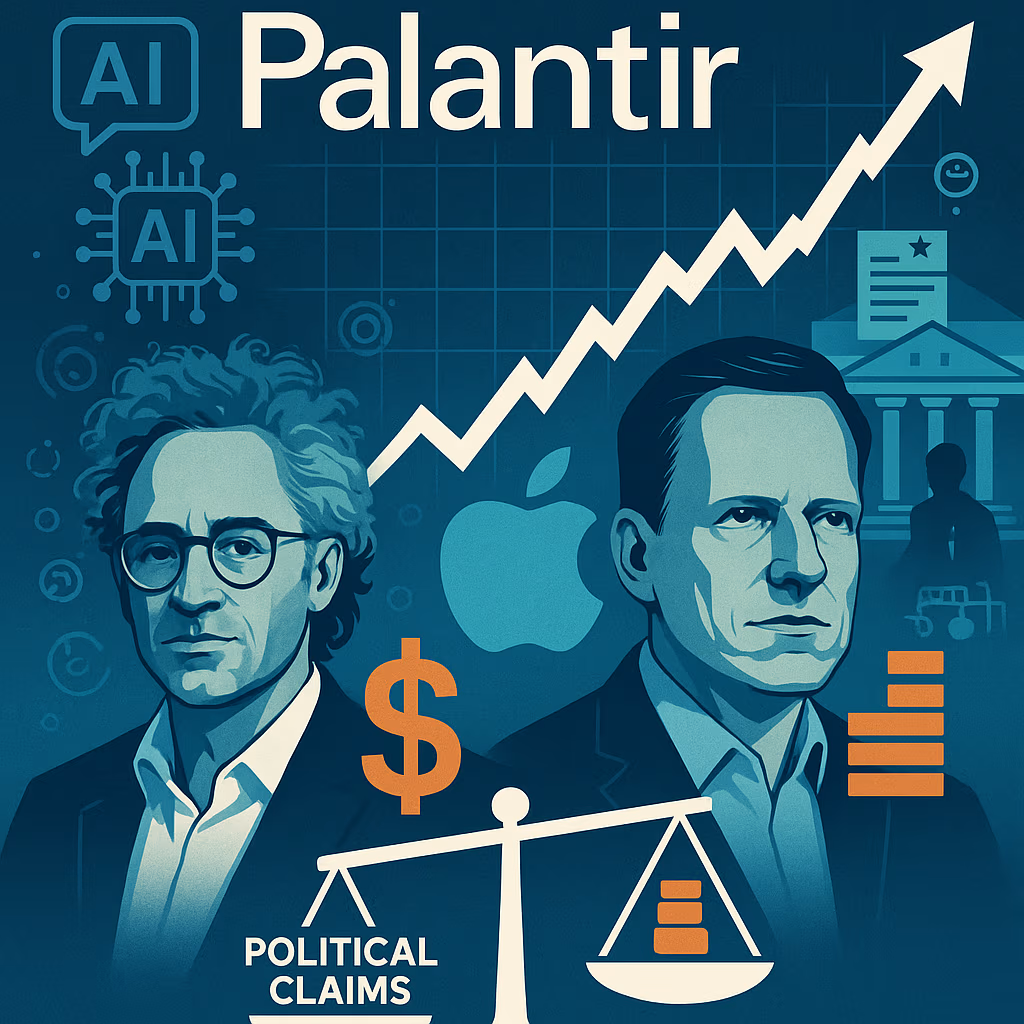The American dream is being rewritten—and in 2025, it often looks like a laptop, a personal brand, and a well-crafted business model that runs without employees. Welcome to the Solopreneur Economy, a rising force in the business landscape where individuals are launching, managing, and growing full-scale ventures on their own.
Solopreneurship—once considered a side hustle or a stepping stone to startup life—has now become a legitimate and thriving model of entrepreneurship. From freelance designers and digital marketers to coaches, consultants, online store owners, and course creators, millions of individuals are ditching the corporate ladder to build sustainable businesses independently.
But why is this shift happening now? What’s powering the solopreneur boom in the U.S., and how are these businesses succeeding without traditional teams or infrastructure? In this article, we explore the key drivers, tools, challenges, and long-term implications of this growing economic movement.
What Is a Solopreneur?
A solopreneur is an entrepreneur who runs their business alone—without co-founders, full-time employees, or large overhead. They often wear every hat: marketer, operator, accountant, and strategist. But unlike traditional one-person businesses of the past, today’s solopreneurs often rely on automation, digital platforms, AI tools, and global freelancers to scale far beyond the limitations of a single individual.
Solopreneurs aren’t necessarily anti-growth—they simply choose a lean, flexible, and tech-enabled model that prioritizes freedom, profitability, and personal brand equity over hierarchy or office space.
Why the Solopreneur Economy Is Booming in 2025
1. Technology Has Lowered the Barriers to Entry
In 2025, launching a digital business takes less than a day. Platforms like Shopify, Substack, Gumroad, Teachable, and Notion allow solopreneurs to create products, offer services, publish content, and get paid—all with minimal cost.
AI-powered tools like ChatGPT, Jasper, Descript, and Canva automate content creation, customer support, video editing, and design. Cloud software handles billing, email marketing, scheduling, and contracts. The infrastructure that once required a full team is now available to a single person—for less than $100/month.
2. The Remote Work Revolution Changed Expectations
COVID-19 permanently shifted the mindset around work. Millions experienced the benefits of working from home, managing flexible schedules, and reclaiming their time. In 2025, those experiences have translated into a cultural shift: autonomy is now a primary career goal.
Rather than returning to rigid 9–5 roles, many professionals—especially Millennials and Gen Z—are choosing to build businesses around their skills, passions, and personal schedules.
3. Content Creation and Personal Brands Drive Demand
We now live in a creator-first world, where individuals with expertise, opinions, and charisma can monetize directly through digital channels. Whether it’s YouTube, TikTok, Instagram, podcasts, or newsletters, solopreneurs can reach thousands—or millions—without traditional gatekeepers.
As audiences grow, so do revenue streams: from affiliate marketing and sponsorships to digital products, coaching, and memberships. The most successful solopreneurs blend content + community + commerce, turning their following into an engine for revenue.
4. Corporate Disillusionment Is Fueling Entrepreneurial Spirit
Layoffs, burnout, and rising dissatisfaction with corporate culture have pushed many professionals to explore independent paths. With the rise of AI replacing repetitive knowledge work, solopreneurs are carving out human-centered niches focused on creativity, empathy, and transformation—areas machines can’t easily replace.
More than ever, people are asking: “Why work 40 hours building someone else’s dream, when I can build mine?”
Popular Solopreneur Business Models
Solopreneurs are thriving in a wide range of sectors. Some of the most popular business models in 2025 include:
- Freelancing (writing, design, development, video editing, consulting)
- Digital product sales (eBooks, templates, Notion docs, software tools)
- Online courses and coaching
- Affiliate marketing and content monetization
- Niche subscription services or communities
- Print-on-demand e-commerce
- Newsletter and blog monetization
Each model offers scalability without the need for physical infrastructure or employees—ideal conditions for solopreneurs seeking lean, flexible income streams.
Tools Empowering the Solopreneur Economy
The modern solopreneur relies on a tech stack that automates, simplifies, and scales their operations. Some key tools include:
- AI content tools: ChatGPT, Jasper, Writesonic
- Website builders: Webflow, Squarespace, Carrd
- E-commerce platforms: Shopify, Gumroad, Ko-fi
- Email marketing: ConvertKit, Beehiiv, MailerLite
- Scheduling and CRM: Calendly, Notion, HoneyBook
- Invoicing and finance: QuickBooks, Stripe, Wave
With access to this ecosystem, a solopreneur can operate with the efficiency of a five-person team.
Challenges Solopreneurs Face
Despite the growth, the solopreneur path is not without hurdles:
- Isolation: Working alone can lead to loneliness and lack of support.
- Burnout: Managing every aspect of a business can be exhausting without systems or boundaries.
- Income variability: Without predictable paychecks, cash flow management is critical.
- Legal and compliance risk: Solopreneurs must navigate contracts, taxes, and licensing alone or hire professionals.
Success in the solopreneur economy requires self-discipline, constant learning, and a strong support network—even if that’s a virtual community of peers.
The Economic Impact of Solopreneurship
The rise of solopreneurs is reshaping local economies, tax codes, and labor markets. According to recent estimates, more than 55 million Americans are now operating as freelancers or solo business owners—a number projected to increase steadily through the decade.
Cities are adjusting to accommodate this workforce through co-working spaces, tax incentives, and programs supporting independent professionals. Banks are developing new credit products tailored to irregular income. Even large corporations are hiring solopreneurs as contract-based service providers instead of full-time staff.
In short, solopreneurs are not a fringe trend—they’re becoming the new foundation of the U.S. economy.
Who Is the Solopreneur of 2025?
There’s no single profile. Solopreneurs come from all walks of life:
- A mid-career professional launching a consulting firm after corporate burnout.
- A Gen Z creator monetizing TikTok advice through affiliate links and digital downloads.
- A stay-at-home parent building an Etsy store for handcrafted goods.
- A retiree offering financial coaching via Zoom and newsletters.
What unites them is the desire for independence, impact, and control over their time and work.
The Future of the Solopreneur Economy
As automation replaces routine tasks, and workers prioritize freedom over titles, solopreneurship will continue to grow. We’ll see:
- More AI-driven solo enterprises with minimal overhead.
- Global collaboration through platforms like Fiverr, Upwork, and indie coworking networks.
- Governments adapting policies to support self-employed individuals.
- Education systems adjusting to teach entrepreneurial thinking and digital literacy.
In this emerging world, being your own boss is no longer the exception—it’s the expectation.
A Business of One Is a Force of Many
The solopreneur economy is more than a trend—it’s a movement. It represents a shift toward autonomy, purpose, and modern entrepreneurship driven by technology, creativity, and community.
As we move forward, solopreneurs will play an increasingly vital role in shaping the future of work, not as lone wolves—but as powerful contributors to a flexible, decentralized, and value-driven economy.
For those ready to take the leap, the tools, audience, and opportunities have never been more accessible. In the solopreneur economy, you don’t need a big team to make a big impact.





